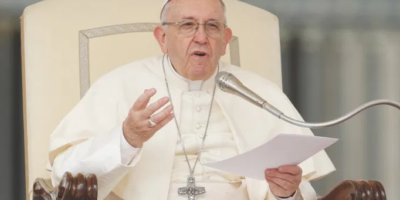COVID-19: IMF Projects $13.8trn Cumulative Global Losses By 2024

The International Monetary Fund (IMF) has lamented that economic indicators have continued to point to weaker growth momentum, due to the Omicron variant and persistent supply chain disruptions.
It projected about $13.8 trillion in cumulative global output losses from the COVID-19 pandemic by 2024.
According to the IMF, the Omicron variant was the latest reminder that a durable and inclusive recovery was impossible while the pandemic continues, prescribing strong global cooperation and ‘extraordinary agility.’
In a new article titled: “Three Policy Priorities for a Robust Recovery,” the IMF Managing Director, Kristalina Georgieva
observed that considerable uncertainty remained due to the virus post-Omicron, including the durability of protection offered by vaccines or prior infections, and the risk of new variants.
She said as the G20 finance ministers and central bank governors gather in Jakarta, Indonesia physically and virtually, they could take inspiration from the Indonesian phrase, ‘gotong royong’ (working together to achieve a common goal).
Georgieva stated: “This spirit is more important than ever as countries are facing a tough obstacle course this year.
The good news is that the global economic recovery continues, but its pace has moderated amid high uncertainty and rising risks. Three weeks ago, we cut our global forecast to a still-healthy 4.4 per cent for 2022, partly because of a reassessment of growth prospects in the United States and China.
Since then, economic indicators have continued to point to weaker growth momentum, due to the Omicron variant and persistent supply chain disruptions. Inflation readings have been higher than expected in many economies; financial markets remain volatile; and geopolitical tensions have sharply increased.
The IMF chief executive said the global community must work together to end the pandemic, navigate monetary tightening and shift focus to fiscal sustainability.
She listed three policy priorities for a robust recovery, including broader efforts to fight what she described as ‘economic long-Covid’, as countries navigating the monetary tightening cycle, and the need for countries to shift their focus to fiscal sustainability.
She noted that the best defence was to move from a singular focus on vaccines to ensuring each country has equitable access to a comprehensive COVID-19 toolkit with vaccines, tests, and treatments.
Keeping these tools updated as the virus evolves will require ongoing investments in medical research, disease surveillance, and health systems that reach the “last mile” into every community.
Upfront financing of $23.4 billion to close the ACT-Accelerator funding gap will be an important down payment on distributing this dynamic toolkit everywhere. Going forward, enhanced coordination between G20 finance and health ministries is essential to increasing resilience—both to potential new SARS-CoV-2 variants, and future pandemics that could pose systemic risks,
Georgieva stressed.
According to her, ending the pandemic will also help address the scars from economic long-COVID.

Justin Nwosu is the founder and publisher of Flavision. His core interest is in writing unbiased news about Nigeria in particular and Africa in general. He’s a strong adherent of investigative journalism, with a bent on exposing corruption, abuse of power and societal ills.













